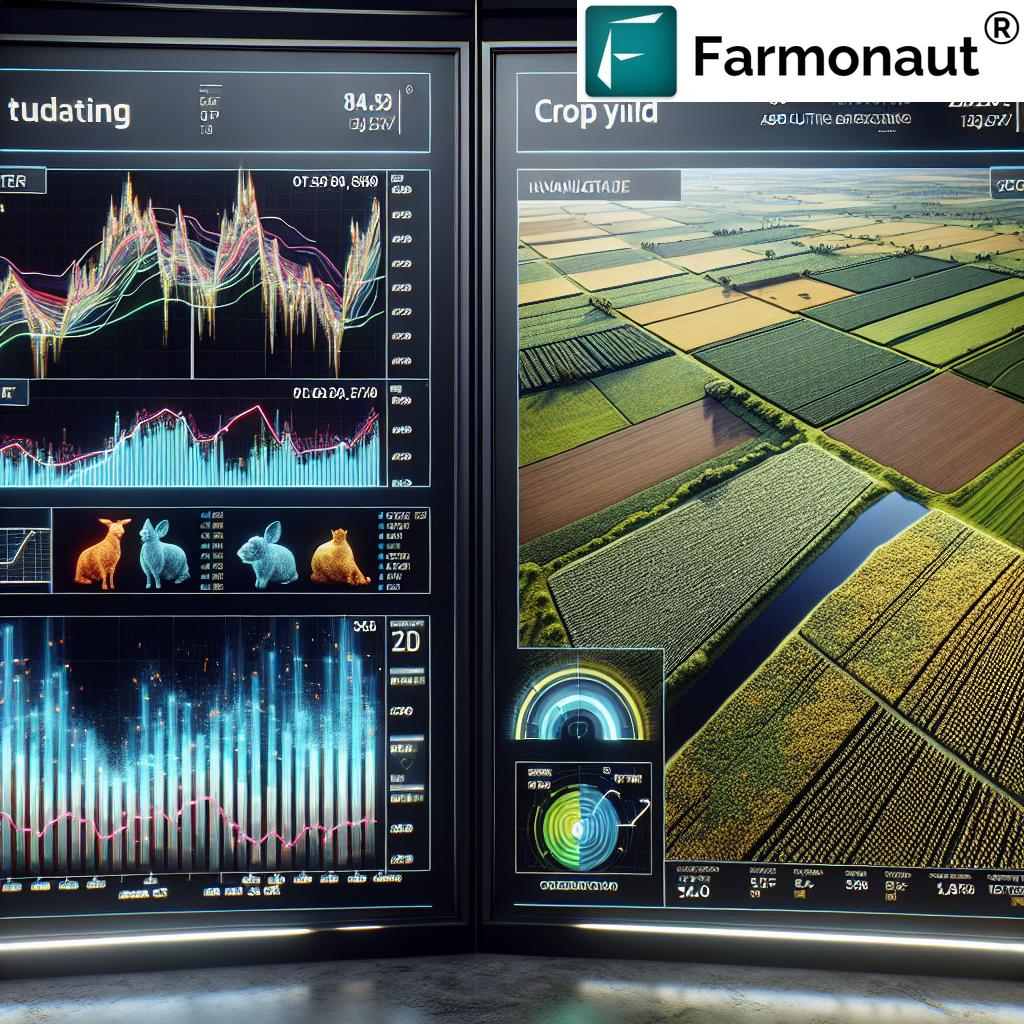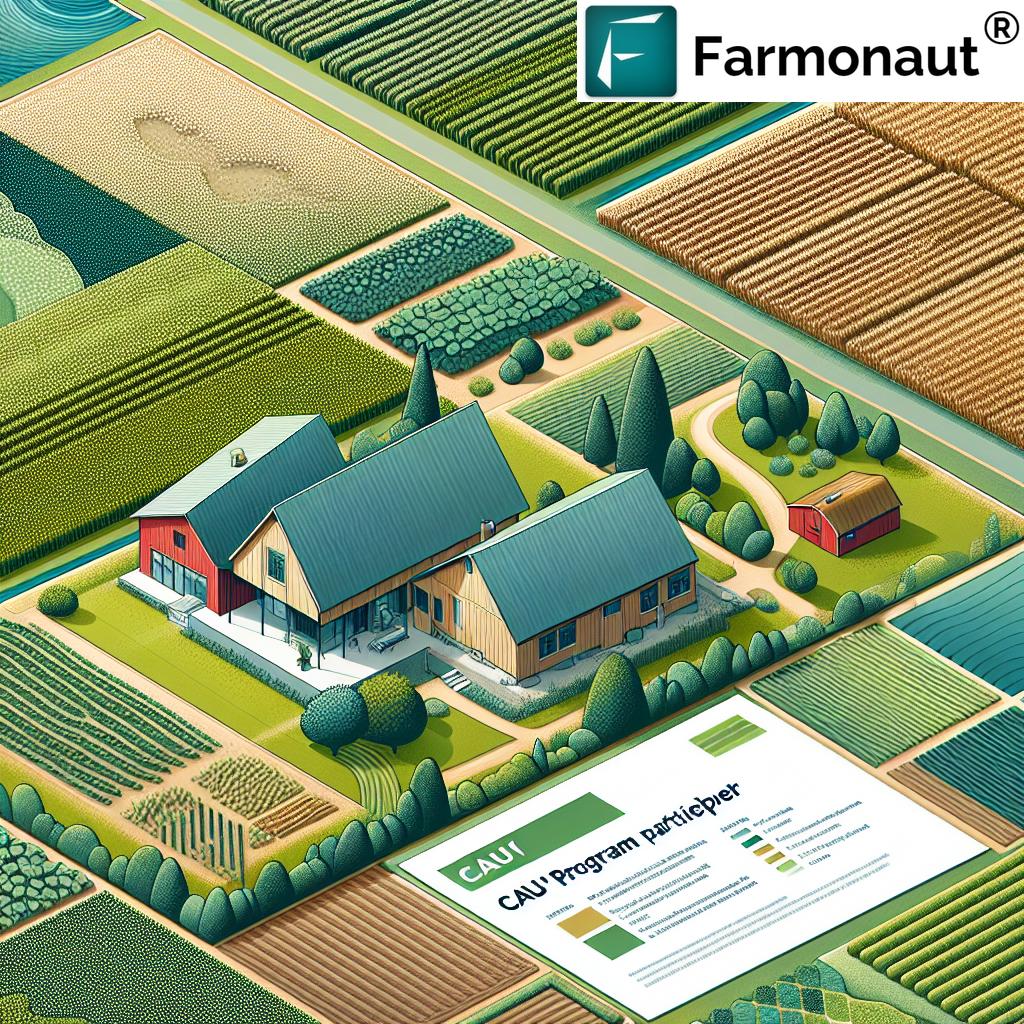Navigating the 2024 Farm Bill: How Precision Agriculture Can Safeguard Michigan Farmers Amid Political Uncertainty

“The 2024 Farm Bill negotiations will impact over $428 billion in USDA program funding over a 5-year period.”
As we approach the 2024 US elections, the agricultural sector finds itself at a critical juncture. The upcoming Farm Bill, a cornerstone of American agricultural policy, is set to take center stage in political debates. For Michigan farmers, navigating these uncertain waters requires a blend of political savvy and technological adaptation. In this comprehensive exploration, we’ll delve into how precision agriculture can serve as a safeguard for Michigan’s agricultural community amidst the swirling tides of political uncertainty.
Understanding the 2024 Farm Bill: A Primer for Michigan Farmers
The Farm Bill, renewed approximately every five years, is a crucial piece of legislation that shapes US agricultural and food policy. It encompasses a wide range of programs, from crop insurance and conservation efforts to nutrition assistance and rural development initiatives. For Michigan farmers, the 2024 Farm Bill holds particular significance as it will determine the level of support and resources available to them in the coming years.
Key components of the Farm Bill that directly impact Michigan agriculture include:
- Farm income support programs
- Crop insurance subsidies
- Conservation initiatives
- Research and development funding
- Rural development programs
As political negotiations unfold, the final shape of these programs remains uncertain. This uncertainty underscores the need for Michigan farmers to adopt strategies that can help them thrive regardless of policy outcomes.
The Political Landscape: Elections, Negotiations, and Agricultural Policy
The 2024 election season brings with it a complex web of political considerations that will influence the Farm Bill negotiations. As Republicans and Democrats vie for control of the White House, Congress, and state legislatures, agricultural policy becomes a key battleground. Michigan, as a crucial swing state, finds itself at the heart of these political debates.
Several factors are likely to shape the political discourse around agriculture in Michigan:
- The ongoing debate over emergency farm relief and assistance programs
- Concerns about food security and supply chain resilience
- The push for more sustainable farming practices
- The role of technology in modernizing agriculture
As political campaigns heat up, Michigan farmers must stay informed about the positions of various candidates and parties on these critical issues. Engaging with local representatives and participating in the democratic process can help ensure that the voices of Michigan’s agricultural community are heard in the halls of power.
Precision Agriculture: A Technological Shield Against Policy Uncertainty
While the political landscape may be unpredictable, the march of technological progress in agriculture continues unabated. Precision agriculture, with its focus on data-driven decision-making and resource optimization, offers Michigan farmers a powerful tool to enhance their resilience in the face of policy uncertainties.
“Precision agriculture techniques can reduce input costs by up to 15% while increasing crop yields by 13%.”
At Farmonaut, we’re at the forefront of this agricultural revolution, offering Michigan farmers access to cutting-edge precision agriculture tools. Our satellite-based crop health monitoring system provides real-time insights into vegetation health, soil moisture levels, and other critical metrics. This data empowers farmers to make informed decisions about irrigation, fertilizer usage, and pest management, ultimately optimizing crop yields and reducing resource wastage.
The adoption of precision agriculture technologies can help Michigan farmers:
- Increase operational efficiency
- Reduce input costs
- Improve crop yields
- Enhance environmental sustainability
- Better manage risk in the face of policy changes
By embracing these technologies, Michigan farmers can position themselves for success regardless of the outcome of Farm Bill negotiations or election results.
The Role of Agricultural Data Analytics in Informing Policy and Practice
As the debate over the 2024 Farm Bill intensifies, the importance of accurate, data-driven insights cannot be overstated. Agricultural data analytics, powered by advanced technologies like satellite imaging and machine learning, are playing an increasingly crucial role in shaping both policy decisions and on-farm practices.
For policymakers, access to comprehensive agricultural data can inform more targeted and effective support programs. For Michigan farmers, these analytics offer a wealth of information to guide decision-making and improve farm management strategies.
At Farmonaut, we’re committed to bridging this gap between data and action. Our Jeevn AI Advisory System delivers personalized farm advisory services, leveraging real-time data and expert knowledge to provide Michigan farmers with actionable insights. This combination of big data and artificial intelligence is revolutionizing the way farms are managed, making them more resilient to both policy shifts and environmental challenges.
Explore Farmonaut’s API for advanced agricultural data analytics
Sustainable Farming Practices: Aligning with Policy Trends and Market Demands
As discussions around the 2024 Farm Bill unfold, sustainable farming practices are likely to take center stage. Both political parties have shown increasing interest in promoting environmentally friendly agricultural methods, reflecting growing consumer demand for sustainably produced food.
For Michigan farmers, adopting sustainable practices can serve a dual purpose:
- Aligning with potential policy incentives in the upcoming Farm Bill
- Meeting market demand for sustainably produced agricultural products
Precision agriculture technologies play a crucial role in enabling sustainable farming practices. By optimizing resource use and reducing waste, these tools help farmers minimize their environmental impact while maintaining profitability.

Farmonaut’s platform includes features specifically designed to support sustainable farming:
- Carbon footprint tracking to help monitor and reduce emissions
- Resource management tools to optimize water and fertilizer use
- AI-driven recommendations for crop rotation and soil health management
By leveraging these tools, Michigan farmers can position themselves at the forefront of sustainable agriculture, potentially benefiting from both policy support and market premiums.
Navigating Farm Income Support and Risk Management
One of the most contentious aspects of Farm Bill negotiations is often the structure and extent of farm income support programs. These programs, which include crop insurance subsidies and direct payments, are crucial safety nets for many farmers, especially in times of market volatility or natural disasters.
As political debates heat up, Michigan farmers may face uncertainty about the future of these support programs. Here’s where precision agriculture can provide an additional layer of financial security:
- By optimizing yields and reducing input costs, precision agriculture can improve overall farm profitability, reducing reliance on support programs.
- Advanced crop monitoring and predictive analytics can help farmers make more informed decisions about crop insurance and risk management strategies.
- Detailed farm data can support more accurate reporting and compliance with existing support programs, ensuring farmers receive the full benefits they’re entitled to.
Farmonaut’s platform offers Michigan farmers powerful tools for financial planning and risk management. Our AI-driven analytics can help predict crop yields, market trends, and potential risks, allowing farmers to make proactive decisions about their operations.
The Intersection of Technology Adoption and Policy Support
As we look towards the 2024 Farm Bill, there’s a growing recognition of the role that agricultural technology can play in addressing key policy objectives. This intersection of technology and policy presents both opportunities and challenges for Michigan farmers.
Potential policy measures that could impact technology adoption include:
- Increased funding for precision agriculture research and development
- Incentives for farmers who adopt sustainable, technology-driven practices
- Support for rural broadband infrastructure to enable wider access to digital farming tools
- Training programs to help farmers leverage new agricultural technologies
For Michigan farmers, staying ahead of the curve in technology adoption can position them to take full advantage of any supportive policies that emerge from the 2024 Farm Bill negotiations. Moreover, by demonstrating the benefits of precision agriculture, farmers can help shape the policy discourse around agricultural technology.
Precision Agriculture Adoption and Political Factors in Michigan
| Precision Agriculture Technology | Current Adoption Rate (%) | Potential Adoption Rate (%) under Pro-Farm Bill Scenario | Potential Adoption Rate (%) under Limited Farm Bill Scenario | Estimated Impact on Farm Income ($) |
|---|---|---|---|---|
| Satellite-based crop monitoring | 35 | 60 | 45 | +$15,000 |
| Soil sensors | 25 | 50 | 35 | +$10,000 |
| Automated irrigation systems | 20 | 45 | 30 | +$12,000 |
| Drone-based field mapping | 15 | 40 | 25 | +$8,000 |
| Predictive analytics for crop yield | 10 | 35 | 20 | +$18,000 |
This table illustrates the potential impact of different political scenarios on precision agriculture adoption in Michigan. It’s clear that supportive policies could significantly accelerate technology adoption, leading to substantial improvements in farm income.
Preparing for the Future: Strategies for Michigan Farmers
As we navigate the uncertain waters of agricultural policy and technological change, Michigan farmers can take several steps to prepare for the future:
- Stay informed: Keep abreast of Farm Bill negotiations and political developments that could impact agriculture.
- Engage in the political process: Make your voice heard by contacting representatives and participating in agricultural policy forums.
- Invest in technology: Consider adopting precision agriculture tools to improve efficiency and resilience.
- Focus on sustainability: Embrace sustainable farming practices that align with both policy trends and market demands.
- Build financial resilience: Use data-driven insights to improve risk management and financial planning.
- Collaborate and share knowledge: Engage with other farmers and agricultural organizations to share experiences and best practices.
At Farmonaut, we’re committed to supporting Michigan farmers through this period of change and uncertainty. Our platform offers a comprehensive suite of tools designed to empower farmers with data-driven insights and advanced agricultural technologies.
Conclusion: Embracing Technology for a Resilient Agricultural Future
As we look towards the 2024 Farm Bill and beyond, it’s clear that the intersection of policy and technology will play a crucial role in shaping the future of Michigan agriculture. While political uncertainties may persist, the adoption of precision agriculture technologies offers a path to increased resilience, efficiency, and sustainability for Michigan farmers.
By leveraging advanced tools like Farmonaut’s satellite-based crop monitoring and AI-driven advisory systems, farmers can position themselves to thrive regardless of policy outcomes. These technologies not only improve farm operations but also provide valuable data to inform policy discussions and demonstrate the tangible benefits of agricultural innovation.
As we navigate this critical juncture in American agriculture, let’s embrace the power of precision farming to safeguard Michigan’s agricultural heritage and pave the way for a prosperous, sustainable future.
FAQ: Navigating the 2024 Farm Bill and Precision Agriculture
Q: How will the 2024 Farm Bill affect Michigan farmers?
A: The 2024 Farm Bill will impact various aspects of Michigan agriculture, including farm income support programs, crop insurance, conservation initiatives, and research funding. The exact effects will depend on the final negotiated terms of the bill.
Q: What role does precision agriculture play in farm policy?
A: Precision agriculture is increasingly recognized as a key tool for achieving policy objectives such as improving farm efficiency, reducing environmental impact, and enhancing food security. It may influence policy decisions and potentially be supported through various Farm Bill programs.
Q: How can Michigan farmers prepare for potential changes in agricultural policy?
A: Michigan farmers can prepare by staying informed about policy developments, engaging in the political process, adopting precision agriculture technologies, focusing on sustainable practices, and building financial resilience through data-driven decision-making.
Q: What benefits does Farmonaut offer to Michigan farmers?
A: Farmonaut provides Michigan farmers with advanced satellite-based crop monitoring, AI-driven advisory services, and tools for resource management and sustainability tracking. These technologies can help improve farm efficiency, reduce costs, and enhance resilience to policy changes.
Q: How does precision agriculture contribute to sustainable farming?
A: Precision agriculture enables more efficient use of resources like water and fertilizers, reduces waste, and helps farmers make data-driven decisions that minimize environmental impact while maintaining or improving productivity.
















